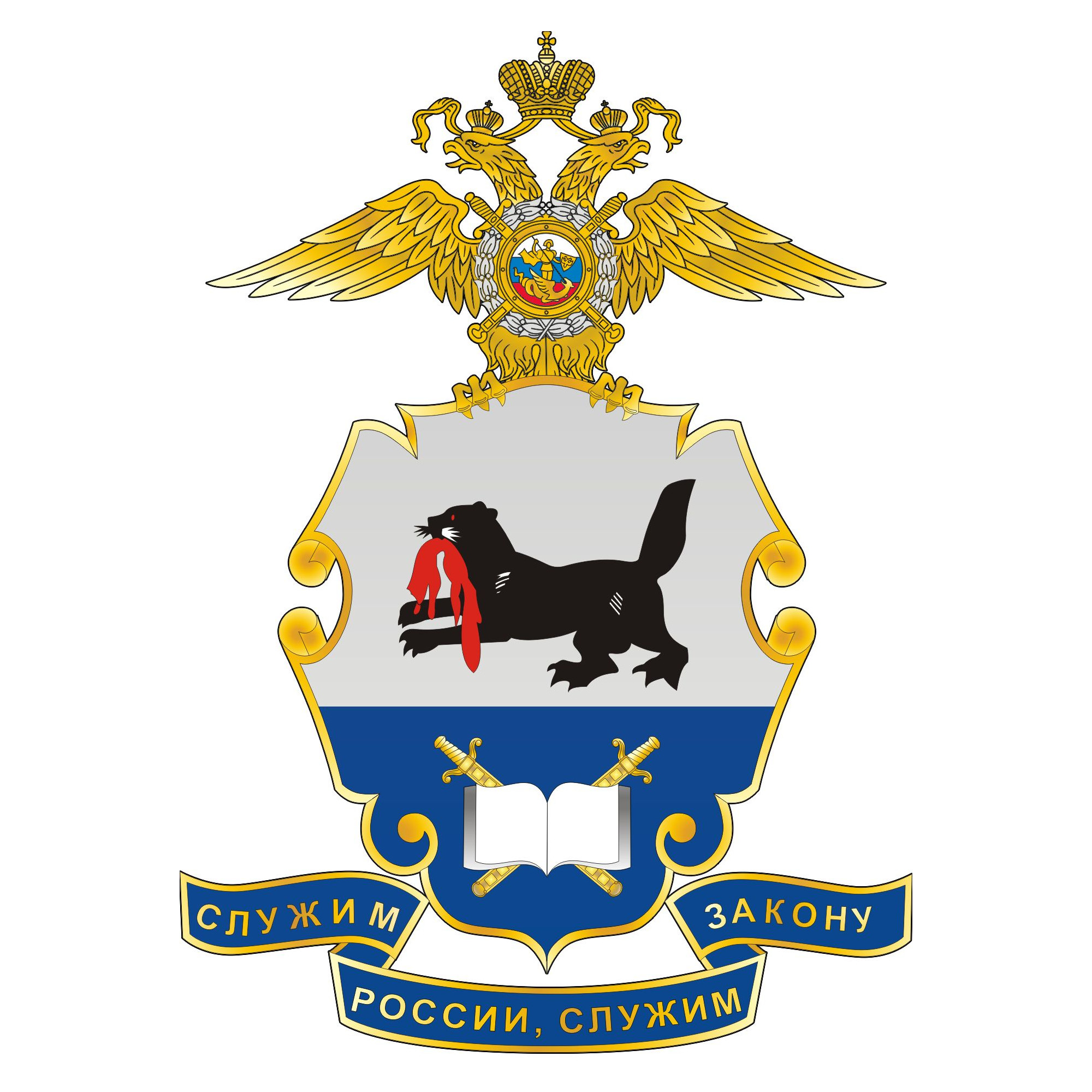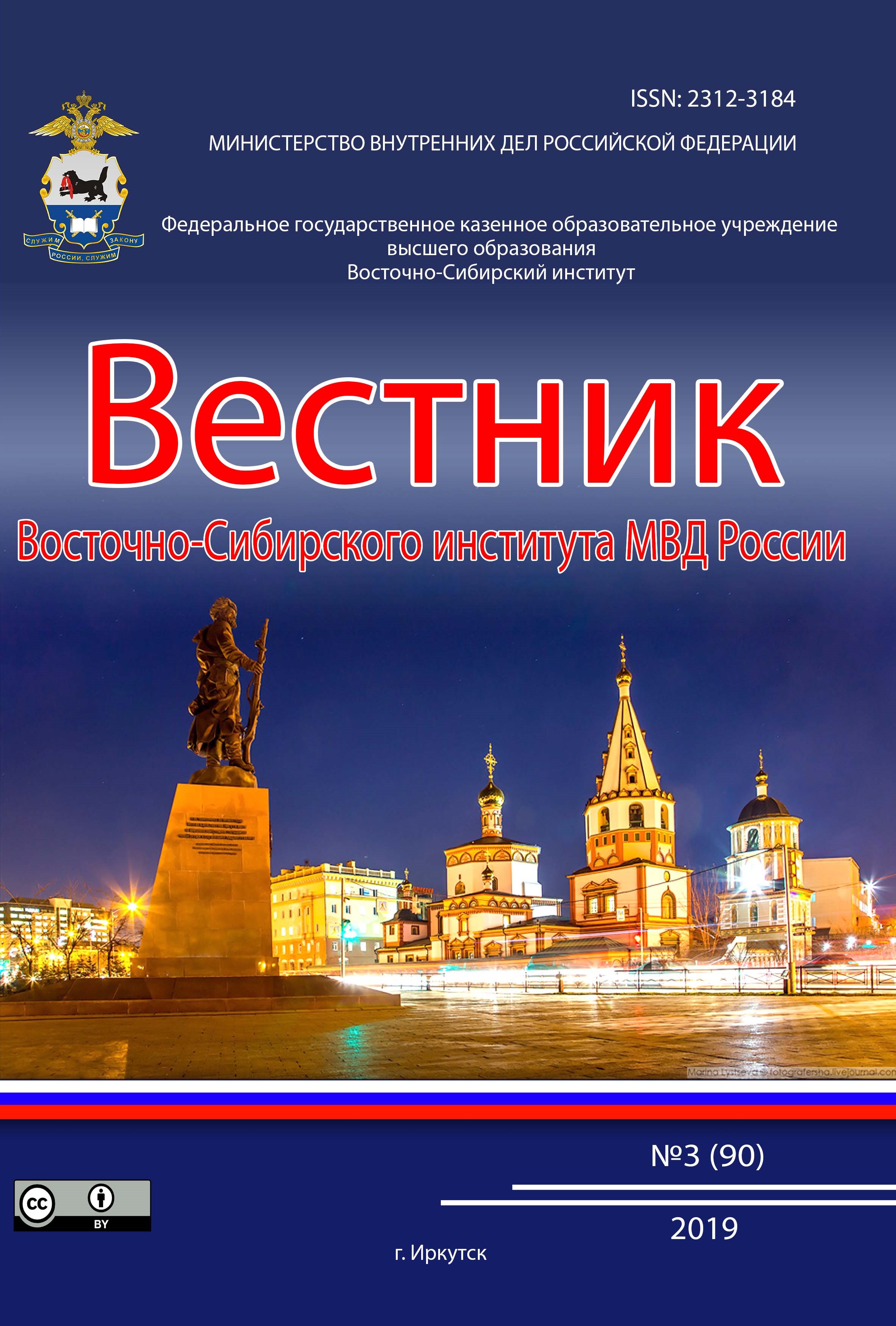Vostochno-Sibirskiy institut MVD Rossii
Irkutsk, Russian Federation
Introduction. The effectiveness of the crime investigation process is a certain degree of implementation of the activities planned by the investigator and the achievement of the results planned by him. Evaluation of effectiveness, first of all, is associated with establishing the degree of completeness of actions, the degree of fulfillment of the instructions given by the investigator, the achievability of the goal, the completeness of the fulfillment of duties and the implementation of the rights of the participants in the investigation. The regulatory basis for the investigation process is criminal procedural legislation, departmental job descriptions; regulatory reference and other documents that define the scope of control actions. In the article, the investigation of crimes of past years is considered in a technological aspect as a process of cognitive and search activity of the investigator, unfolded in time and controlled by the investigator depending on the current situation. The parameters of this process are determined, allowing one to evaluate the effectiveness of the investigation, and a brief description of them is given. Attention is paid to certain issues of forensic and organizational support for the investigation of crimes of past years, the solution of which helps to improve the quality and efficiency of the search and cognitive activity of the investigator, and therefore the effectiveness of the investigation. In conclusion, conclusions are drawn about ways to increase the effectiveness of the investigation of crimes of past years, as well as the role of the actions taken by the investigator to investigate previously committed crimes. Materials and methods. The basis of the study is the Constitution of the Russian Federation, criminal procedure legislation, departmental regulatory legal acts regulating the use of special knowledge in the investigation of crimes. The methodological basis of the study was the general dialectical method of scientific knowledge, as well as cognitive methods of generalization, description, methods of observation, comparison and analysis. The results of the study. The main directions of development of forensic science are outlined in order to increase the efficiency of the investigation of crimes of past years. Findings and conclusions. The proposed recommendations will help improve the quality of investigations into past crimes.
crime investigation, crimes of past years, reconstruction of crime events, investigative errors, investigative situations, cognitive activity.
1. Korma, V. D., Obrazcov, V. A. K voprosu o strukture i osobennostyah kriminalisticheskoj teorii sledstvennogo poznaniya [On the question of the structure and features of the forensic theory of investigative cognition]. Sbornik nauchnyh statej po materialam Vserossijskoj nauchno-prakticheskoj konferencii (s mezhdunarodnym uchastiem) «Sovremennye problemy otechestvennoj kriminalistiki i perspektivy ee razvitiya». – Collection of scientific articles based on the materials of the All-Russian scientific-practical conference (with international participation) “Modern problems of domestic criminology and prospects for its development.” Krasnodar : Kubanskij gosudarstvennyj agrarnyj universitet imeni I. T. Trubilina, 2019. Pp. 60-65.
2. Karagodin, V.N., Morozova, E.V. Kriminalisticheskie problemy obnaruzheniya i ustraneniya oshibok : uchebno-prakticheskoe posobie [Forensic problems of detection and elimination of errors: educational and practical guide]. Ekaterinburg: Ural Law Institute of the Ministry of Internal Affairs of Russia, 2003. 23 p.
3. Akhmedov, U. N., Dutov, N. Yu. Pravovye posledstviya i puti ustraneniya sledstvennyh oshibok v ugolovnom sudoproizvodstve [Legal consequences and ways to eliminate investigative errors in criminal proceedings]. Vestnik Voronezhskogo instituta MVD Rossii : nauch. zhurn. – Bulletin of the Voronezh Institute of the Ministry of Internal Affairs of Russia. no. 1. 2022. Pp. 110-115.
4. Kuleeva, I. YU. Pravovoe regulirovanie i kriminalisticheskoe obespechenie rassledovaniya neraskrytyh prestuplenij proshlyh let : dissertaciya kandidata yuridicheskih nauk: 12.00.09 [Legal regulation and forensic support for the investigation of unsolved crimes of past years: dissertation of a candidate of legal sciences]. Omsk, 2010. 231 p.
5. Garmaev, YU.P., Kim, D.V. Kriminologicheskie i kriminalisticheskie problemy preodoleniya protivodejstviya ugolovnomu presledovaniyu [Criminological and forensic problems of overcoming counteraction to criminal prosecution]. All-Russian criminological journal – Vserossijskij kriminologicheskij zhurnal : nauch. zhurn. 2020. T. 14. no 3. Pp. 461-470.
6. Moskal'skaya, O. I. Grammatika teksta : posobie po grammatike nemeckogo yazyka dlya institutov i fakul'tetov inostrannyh yazykov [Text Grammar: a manual on German grammar for institutes and faculties of foreign languages]. Moscow: Higher School Moskva : Vysshaya shkola, 1981. 183 p.
7. SHumilkin, A. V., CHebyshev, A. V. Primenenie metoda himiko-spektral'nogo analiza shtrihov past sharikovyh ruchek dlya opredeleniya davnosti ispolneniya dokumentov [Application of the method of chemical-spectral analysis of strokes of ballpoint pen pastes to determine the prescription of documents]. Kriminalistika XXI vek. Materialy nauchno-prakticheskoj konferencii – Forensic science XXI century. Proceedings of the scientific and practical conference. Tom 1. M., 2001. Pp. 397–400.
8. Vekhov, V. B. Rabota s elektronnymi dokazatel'stvami v usloviyah izmenivshegosya ugolovno-processual'nogo zakonodatel'stva [Working with electronic evidence in the context of changed criminal procedural legislation]. Rossijskij sledovatel' – Russian investigator 2013. no 9. Pp. 22–24.
9. Kukarnikova, T. E. Predvaritel'noe issledovanie elektronnogo dokumenta [Preliminary research of an electronic document]. Voronezhskie kriminalisticheskie chteniya: sb. nauch. tr. – Voronezh forensic readings. Collection of scientific papers Vyp. 5. Voronezh, 2004. Pp. 137–146.
10. Korma, V. D. Predvaritel'nye kriminalisticheskie issledovaniya sledov primeneniya oruzhiya : uchebno-prakticheskoe posobie [Preliminary forensic studies of traces of the use of weapons: educational and practical guide]. Moscow, 2007. – 143 p.
11. Sabanov, A. YU. Formy ispol'zovaniya special'nyh znanij specialista-vzryvotekhnika [Forms of using special knowledge of an explosives specialist]. Problemy rassledovaniya neraskrytyh prestuplenij proshlyh let : materialy mezhvuzovskogo nauchnogo seminara – Problems of investigating unsolved crimes of past years: materials of an interuniversity scientific seminar. Akademiya upravleniya MVD Rossii. Moscow, 2008. Pp. 238–242.
12. Aleshkina, T. N. Stanovlenie genomnoj registracii [Formation of genomic registration]. Problemy sovremennogo sostoyaniya i puti razvitiya organov predvaritel'nogo sledstviya – Problems of the current state and ways of development of preliminary investigation bodies: materials of the All-Russian scientific and practical conference: materialy Vserossijskoj nauchno-prakticheskoj konferencii, CH. 2. Akademiya upravleniya MVD Rossii. Moscow, 2010. Pp. 18–27.
13. Ul'vachyova, I. I. Povtornye sledstvennye dejstviya (ugolovno-processual'nyj i kriminalisticheskij aspekty) : avtoref. dis. …kand. yurid. nauk. [Repeated investigative actions (criminal procedural and forensic aspects): abstract. dis. ...cand. legal Sci]. Voronezh, 2005. – Pp. 10.
14. Kuemzhieva, S.A. O ponyatii i soderzhanii gruppovoj metodiki rassledovaniya prestuplenij [On the concept and content of group methods for investigating crimes]. Vserossijskij kriminologicheskij zhurnal. – All-Russian Criminological Journal 2017. T. 11. № 2. Pp. 398-407.
15. Lakomskaya, M. YU. Problemnye situacii rassledovaniya prestuplenij i ih razreshenie posredstvom takticheskih operacij : avtoref. dis. … kand. yurid. nauk. [Problematic situations of crime investigation and their resolution through tactical operations: abstract. dis. ...cand. legal Sci.] Krasnodar, 2019. P. 5–7.
16. Lebedev, N.YU., Lebedeva, YU.V. Upravlencheskie kompetencii sledovatelya i osobennosti ih realizacii pri rassledovanii prestuplenij [Managerial competencies of the investigator and features of their implementation in the investigation of crimes]. Vserossijskij kriminologicheskij zhurnal. – All-Russian criminological journal 2019. T. 13. № 6. Pp. 1017-1024.
17. Stepanenko, D. A. Modelirovanie kak metod nauchnogo issledovaniya v prilozhenii k resheniyu zadach ugolovnogo sudoproizvodstva : Nekotorye aktual'nye aspekty problemy : avtoref. dis. ... kand. yurid. nauk. [Modeling as a method of scientific research as applied to solving problems of criminal proceedings: Some current aspects of the problem: abstract of thesis. dis. ...cand. legal Sci.] Tomsk, 1996. 22 p.
18. Protasevich, A. A., Stepanenko, D. A., SHikanov, V. I. Modelirovanie v rekonstrukcii rassleduemogo sobytiya. Ocherki teorii i praktiki sledstvennoj raboty. [Modeling in the reconstruction of the event under investigation. Essays on the theory and practice of investigative work]. Irkutsk : Izd-vo IGEA, 1997. 208 p.










